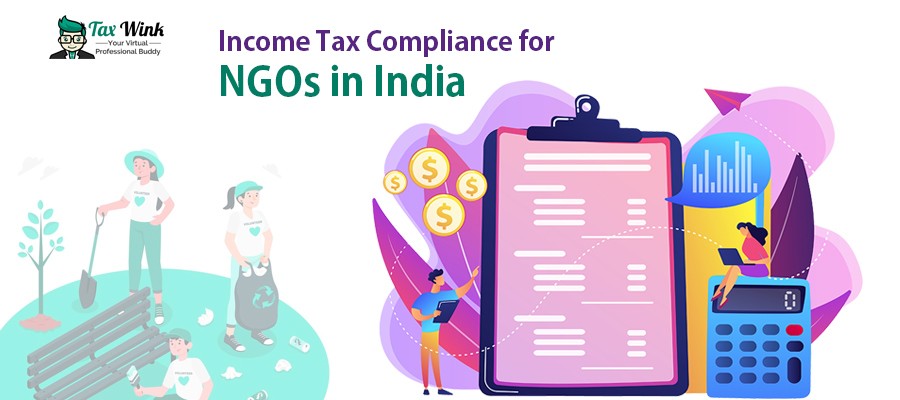NGO in simple Non-Governmental Organization is a type of non-profit earning or generating organization work for welfare development of society and its nation. Moreover, in brief, it’s like a body that remains detached from the Government and profit framework of general businesses in India.

Well, in my concession, these bodies act as small units that fill the gaps i.e. economically and socially at places where the government cannot reach efficiently.
In India, the concept of NGO is wide and has strong virtue in legal compliance. As referred in the Act, NGO may it be a Society, a Trust, or a Section 8 Company.
An NGO (though defining categories) may be required to enroll for various optional and mandatory registration solely depending upon the works and size of the NGO (Non-Governmental Organization).
The following are the most of such registrations required by an NGO in India to retain as good, well-rounded legal security, reputable in social eyes and overwhelm in its overall performance.
- Obtaining the PAN Card for NGO.
- Opening a New Bank Account in the name of the NGO.
- Payment made from earning sources to NGOs led to saving taxes. Though which need TAN registration is required to deduct tax from source.
- GST, Professional Tax Registrations - any one of these registration required by an NGO depending on the gross revenue.
- In the eye of development concept a special FCRA registration is required to receive funds or granting any special projects.
- 12A and 80G certificates are mandatory due to provision laws against getting exemption from paying Income Tax on its income.
- Registrations related with Retirement Benefits such as Provident Fund, ESIC, Gratuity, etc.
In this blog, I will only entail the point of Annual return or Income tax compliance for NGO in India.
Annual Compliance Filings for NGO in India
The fact is NGO gone with many versatile statutory compliances based on its activities, income, size, jurisdiction area, and liabilities under various laws concerned such as the labor & employment law.
These high compliances may have different compliance filing periods which vary as quarterly compliances, half-yearly compliances, and annual compliances.
NGO also file income tax in order to detain their income sources to the government to be known, so far annual compliance by NGOs are to be made with few or all of the following regulatory bodies/offices:
- The Income Tax Department
- The Office of the concerned Registrar of Societies/Charity Commissioner/Registrar of Companies
- The Offices of the directly concerned Legal Authorities relating to the Labor and Employment Law, Shops and Establishments Act, Pollution Control, etc.
- FCRA Division, the Ministry of Home Affairs, Govt of India
Talking about its workability and work activities involves the following documentary tasks:
- Annual Report and the updated List of the members of Governing Body
- Financial Statements
- Income Tax Returns
- Compliance under the FCRA, 2010
- Important Resolutions
- At last, Compliances under the above-mentioned legal authorities applicable
In the end, experience efficient and cost-effective services for the Annual Mandatory Compliances (AMCs) of the NGO located and active anywhere in the entire India from TaxWink. Call over: +91 9829873815 or sending queries to: support@taxwink.com



